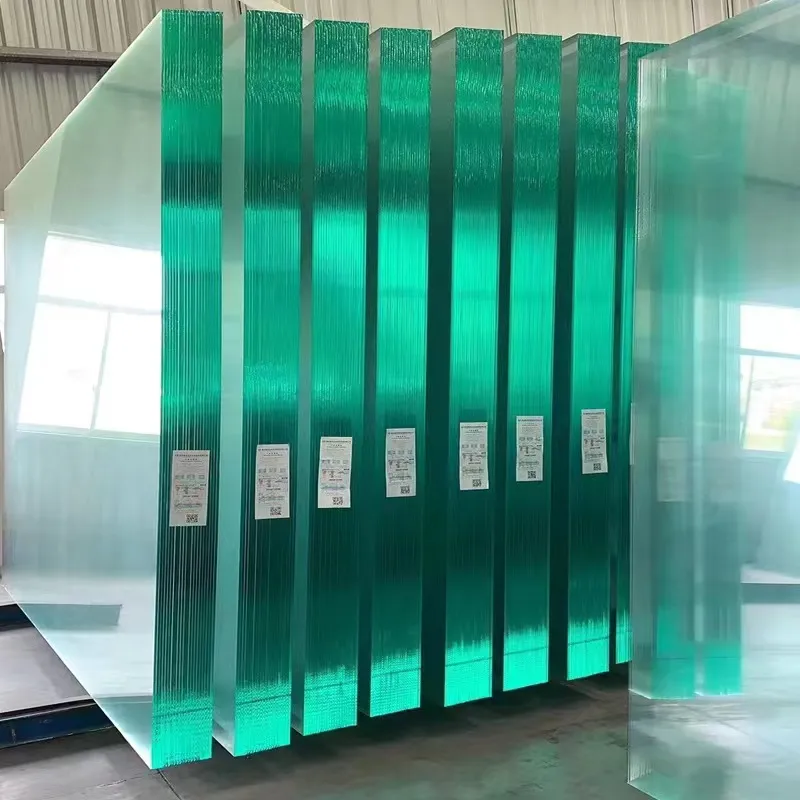Different Types of Opaque Glass
Opaque glass is an intriguing and versatile material that has captured the attention of designers, architects, and homeowners alike. Unlike transparent glass, opaque glass obscures visibility while still allowing light to pass through in varying degrees. This unique characteristic makes it ideal for a range of applications, from enhancing privacy to adding aesthetic appeal. In this article, we will explore different types of opaque glass, their distinctive features, and common uses.
1. Frosted Glass
Frosted glass is one of the most popular types of opaque glass. It is created by sandblasting or acid-etching the surface of clear glass, resulting in a translucent finish. This process diffuses light while blocking visibility, making frosted glass a preferred choice for bathroom windows, shower doors, and interior partitions. Additionally, frosted glass can be customized with various patterns and designs, making it a versatile option for both functional and decorative needs.
2. Translucent Glass
Translucent glass is similar to frosted glass but can offer different levels of opacity. It allows light to filter through while ensuring that shapes and images remain obscured. Translucent glass comes in various textures and colors, allowing for creative applications in residential and commercial settings. Common uses include decorative elements in buildings, such as curtain walls and skylights, as well as privacy screens.
3. Laminated Glass
Laminated glass consists of two or more layers of glass bonded together with a layer of interlayer material, often made of polyvinyl butyral (PVB). This type of glass can provide opacity while enhancing safety and durability. The interlayer can be tinted or frosted to achieve the desired level of opacity. Laminated glass is commonly used in areas that require both security and privacy, such as storefronts, glass doors, and windows in homes.
different types of opaque glass
4. Milk Glass
Milk glass, also known as opaque glass, is a type of glass that has a milky appearance due to the presence of specific minerals. This opaque glass has been a favorite in decorative arts for centuries and is often used to create stunning light fixtures, vases, and tableware. Its nostalgic charm and soft, diffused light effect make it a popular choice for home décor.
5. Colored Opaque Glass
Colored opaque glass is another captivating option that provides both opacity and a burst of color. This glass is manufactured by adding metallic oxides or other coloring agents during the glass-making process. The result is a vibrant, solid color that can block visibility but allows ambient light to filter through. Commonly used in stained glass windows, artistic installations, and decorative panels, colored opaque glass can add a touch of elegance and creativity to any space.
6. Patterned Opaque Glass
Patterned opaque glass features elaborate designs that can enhance privacy while also serving as a decorative element. The patterns can be embossed, etched, or printed onto the glass, creating visually striking effects. This type of glass is often used in doors, partitions, and windows to add a touch of creative flair while maintaining a level of privacy.
Conclusion
Opaque glass offers an exciting array of options to suit various needs and preferences. Whether it's the soft diffusion of light from frosted glass, the safety features of laminated glass, or the artistic flair of colored and patterned options, each type serves a unique purpose. As architects and designers continue to explore the possibilities of opaque glass, we can expect to see innovative applications that enhance both functionality and aesthetic value in our built environments.
 Afrikaans
Afrikaans  Albanian
Albanian  Amharic
Amharic  Arabic
Arabic  Armenian
Armenian  Azerbaijani
Azerbaijani  Basque
Basque  Belarusian
Belarusian  Bengali
Bengali  Bosnian
Bosnian  Bulgarian
Bulgarian  Catalan
Catalan  Cebuano
Cebuano  Corsican
Corsican  Croatian
Croatian  Czech
Czech  Danish
Danish  Dutch
Dutch  English
English  Esperanto
Esperanto  Estonian
Estonian  Finnish
Finnish  French
French  Frisian
Frisian  Galician
Galician  Georgian
Georgian  German
German  Greek
Greek  Gujarati
Gujarati  Haitian Creole
Haitian Creole  hausa
hausa  hawaiian
hawaiian  Hebrew
Hebrew  Hindi
Hindi  Miao
Miao  Hungarian
Hungarian  Icelandic
Icelandic  igbo
igbo  Indonesian
Indonesian  irish
irish  Italian
Italian  Japanese
Japanese  Javanese
Javanese  Kannada
Kannada  kazakh
kazakh  Khmer
Khmer  Rwandese
Rwandese  Korean
Korean  Kurdish
Kurdish  Kyrgyz
Kyrgyz  Lao
Lao  Latin
Latin  Latvian
Latvian  Lithuanian
Lithuanian  Luxembourgish
Luxembourgish  Macedonian
Macedonian  Malgashi
Malgashi  Malay
Malay  Malayalam
Malayalam  Maltese
Maltese  Maori
Maori  Marathi
Marathi  Mongolian
Mongolian  Myanmar
Myanmar  Nepali
Nepali  Norwegian
Norwegian  Norwegian
Norwegian  Occitan
Occitan  Pashto
Pashto  Persian
Persian  Polish
Polish  Portuguese
Portuguese  Punjabi
Punjabi  Romanian
Romanian  Russian
Russian  Samoan
Samoan  Scottish Gaelic
Scottish Gaelic  Serbian
Serbian  Sesotho
Sesotho  Shona
Shona  Sindhi
Sindhi  Sinhala
Sinhala  Slovak
Slovak  Slovenian
Slovenian  Somali
Somali  Spanish
Spanish  Sundanese
Sundanese  Swahili
Swahili  Swedish
Swedish  Tagalog
Tagalog  Tajik
Tajik  Tamil
Tamil  Tatar
Tatar  Telugu
Telugu  Thai
Thai  Turkish
Turkish  Turkmen
Turkmen  Ukrainian
Ukrainian  Urdu
Urdu  Uighur
Uighur  Uzbek
Uzbek  Vietnamese
Vietnamese  Welsh
Welsh  Bantu
Bantu  Yiddish
Yiddish  Yoruba
Yoruba  Zulu
Zulu 

